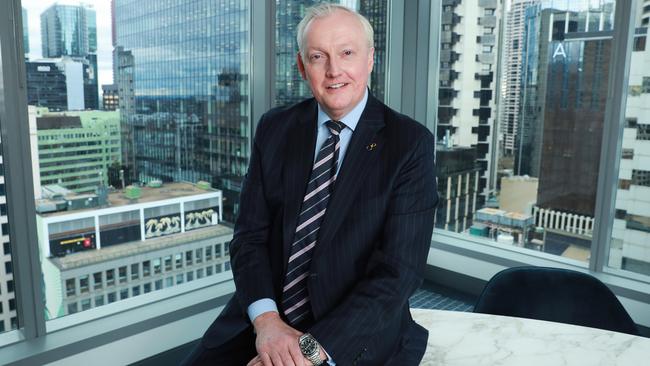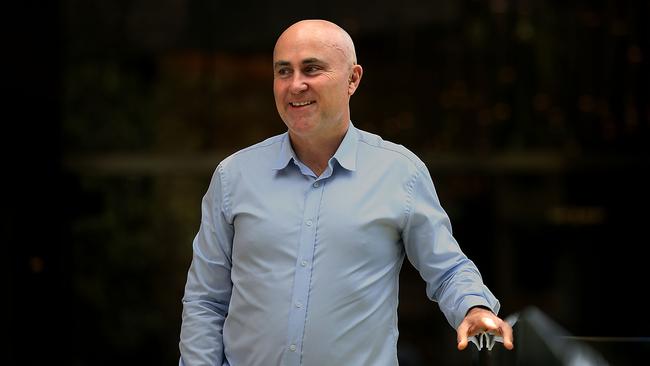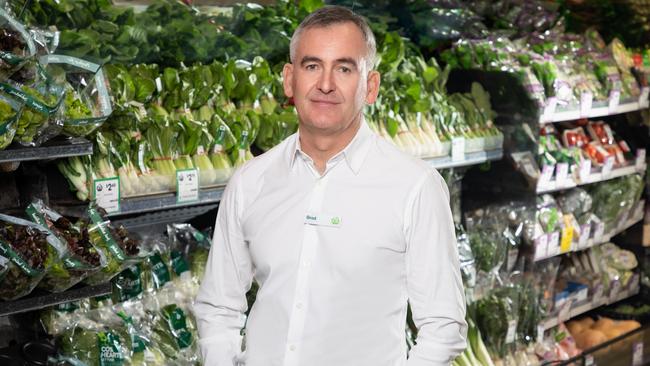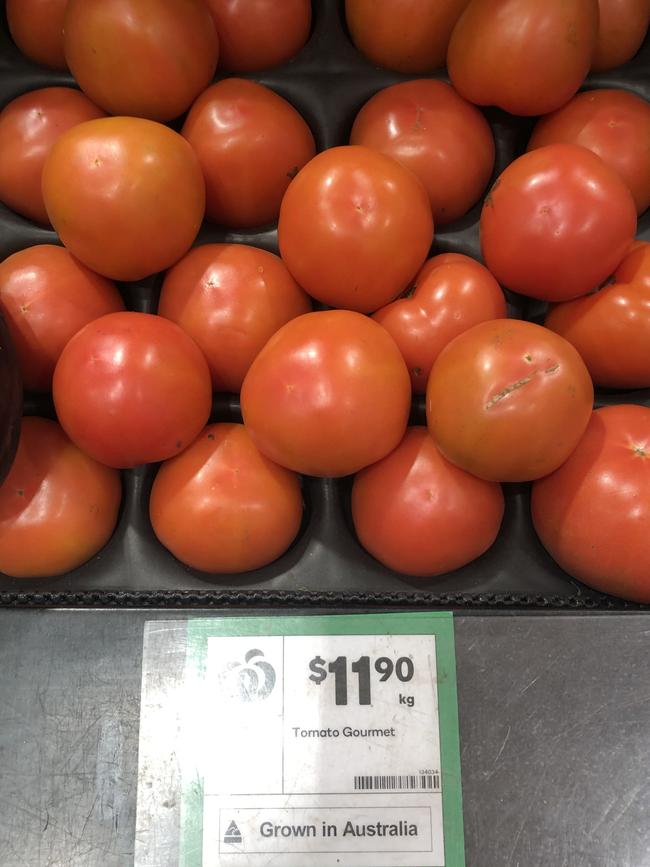The eleventh-hour entry of a $1.75bn bid for Perpetual turns the tables on one of Australia’s oldest financial houses. The stalker Adams has seen his own tactics used against him, with the buyout approach saying more about Perpetual’s high-priced offer for Pendal. Now Adams faces a rearguard action from his own shareholders unless he can make the $2.3bn Pendal offer work harder.

Phil King’s acquisitive Regal Funds group and Asia-focused private equity vehicle BPEA EQT approached Perpetual chairman Tony D’Aloisio on Wednesday night with the $30-a-share offer. Perpetual’s board quickly knocked back the approach, saying the bid materially undervalues the blue chip funds house.
The bid is indeed skinny, representing a premium of 16 per cent to Perpetual’s previous close and a 23 per cent lift on the 30-day average price. It also comes in a cyclical downturn for equities, with expectations the bear market will push into next year if the US falls into a recession.
The bidding partners have firepower – particularly BPEA – so if they returned with a higher offer it would make it harder for Perpetual to keep the door shut tight.
The joint nature of the proposed bid will see Perpetual carved up. Regal would take charge of Perpetual’s funds management businesses, including the Australian equities team, global investor Barrow Hanley and the faster-growing ESG-focused business Trillium.
BPEA EQT would inherit Perpetual’s operational businesses, including the highly regarded corporate trust arm and the non-market services, including Perpetual Private.
The Australian’s Bridget Carter has previously reported that private equity was circling Perpetual, specifically for the corporate trust business which has been valued at $1.3bn-$1.4bn on its own, leaving little left over in a break-up for the funds business.
On Credit Suisse numbers a $32-a-share offer for Perpetual would make a change of control more attractive, while a $35 offer – a level last seen in November last year – would still be economically rational for the bidding partners.
There are many moving parts to this, because having slowly secured the backing from Pendal’s board for a buyout, Perpetual’s Adams had wanted to move quickly. He hopes to have his Pendal bid wrapped up by early next year, with a scheme booklet scheduled for release later this month and a Pendal shareholder vote planned for December.
The cold reality for Adams is ever since he secured agreement for the friendly buyout of Pendal in August with improved terms, Perpetual’s shares have been weighed down by the costly bid, staying well below $30 a share. Investor feedback over the bid had been cool, which is what the Regal consortium hopes to exploit.
Perpetual returned to Pendal, offering cash and shares valued at $2.3bn, more than Perpetual’s own market capitalisation.

That takeover would see Pendal’s investors emerge with a 47 per cent slice of the company while only $60m in cost savings have been budgeted for the combination, which would create a $200bn funds house.
Regal doesn’t want the planned buyout with Pendal to move ahead. It believes this deal was struck some ago and does not reflect current market conditions or the valuations of asset managers, which have deteriorated since that time.
The Perpetual offer is equivalent to 16.8 times Pendal’s forward earnings. But to show how the market has changed, the Regal-BPEA deal is offering 9.2 times forward earnings for Perpetual.
The market response to the Regal consortium bid is telling. Perpetual’s shares surged 7.1 per cent to $28.82 on Thursday, while Pendal sank 11 per cent on the view its takeover was at real risk of being derailed. Regal, which is capitalised at half of Perpetual, saw its shares jump 4.5 per cent.
The bid is ambitious for Regal, which under chief investment officer King has signalled an intention to grow the funds of funds house quickly.
Following his opportunistic merger, finalised this year, with the underperforming hedge fund VGI Partners, Regal now has more than $5bn in assets under management across four investment management businesses. It also has a 5 per cent stake in value manager Platinum.
Still, a move on Perpetual’s $21.3bn Australian asset management arm’s $68.5bn international book would be a substantial management bite for King and his team, requiring a leap of faith among his own investment base. Effectively BPEA would be funding a reverse funds takeover for Regal.
Pendal has a $23m break fee coming if the Perpetual buyout falls apart, but Adams stands to lose more with his transformational deal now less than certain.
–
Food for thought
For Woolworths boss Brad Banducci the humble cherry could hold the key to inflation.
Heavy rains through spring mean there has been a delay to the start of cherry season this year, and combined with flooding across key growing zones more shortages could add to the furious inflation across fresh fruit and vegetable pricing. Inflation accelerated through Woolworths’ supermarkets in the September quarter, with average prices up 7.3 per cent. Most of the increases are on the back of double-digit gains in fresh food and broader input pressures on other foods.
The gains are consistent with rival Coles, which last week reported supermarket price inflation of 7.1 per cent for the quarter that ended October 3 and nearly 9 per cent for fresh food.
Heading into December, food inflation is set to shape some of the central bank’s thinking about the size of the next interest rate rise, and if it persists, could force the Reserve Bank to step up to larger cash rate increases.

The bright spot is that in recent weeks both Coles and Woolworths have consistently argued Australia may be hitting peak inflation for food.
“We do believe that in the next quarter, inflation will moderate from where it is today … some food deflation started to come through in late November, early December,” Banducci says.
Another wet summer across the east coast or further issues around the cherries threaten to put more heat under food prices. But Banducci still thinks the pace of price rises could start to ease in the new year.
The other big shadow over this is how soaring energy prices will play out for suppliers. Banducci says it varies from company to company. Big manufacturers have different hedging strategies in place, and it also depends on whether the supplier is based onshore or offshore. Smaller producers are more exposed.
Even with inflation-driven price rises, Woolworths is starting to see pressure on its top line revenue as Australians get back to normal this year following nearly two years of Covid-19 lockdowns. The supermarkets sales fall is behind a bigger-than-expected 3.7 per cent drop in Woolworths shares late on Thursday.

Banducci says more people are going back to a weekly shop or eating out – even with the recent succession of interest rate hikes. This was behind a 0.5 per cent fall in Woolworths’ first-quarter sales from the same time last year for Australian supermarkets and a bigger 2.5 per cent drop in New Zealand food sales. Online food sales saw a near 11 per cent drop in the quarter. The other side of this is the CBD-based Metro stores saw a near 11 per cent lift in sales as more people returned to the office, although their total revenue impact is much smaller.
Department store Big W had one of its best quarters with in-store sales up 57 per cent compared to the same period last year, which had been hit by temporary closures. At the same time, Big W’s sales mix is changing from Covid with less focus on leisure and entertainment and back into clothes and everyday household goods.
“Australians have moved on,” Banducci says.






The pressure has ramped up on Perpetual CEO Rob Adams to show that the value he is giving up through an unpopular merger with rival fund manager Pendal will leave shareholders better off than cash in the hand today.